Job shadowing trip to Bulgaria
Two youth workers traveled to explore a Bulgarian social organisation and local activities. The visit was carried out through an Erasmus+ accredited youth mobility project.
My colleague, Johanna, and I were lucky enough to be able to visit Plovdiv in Bulgaria and learn about Bulgarian social and youth work. Our journey started early on the morning of Monday the 9th of June. Our bus left Turku at 2 am and we arrived at Helsinki airport a bit after 4 am. Our flight left at 6.30 am. We had a layover in Frankfurt and landed in Sofia, Bulgaria at 1 pm.
The train from Sofia to Plovdiv took about three and a half hours, but we enjoyed watching the Bulgarian scenery.
We arrived at the
hotel at around 7 pm extremely hot. The temperature was around 28 degrees
centigrade and it was very humid as it was about to storm. We made it to the
local shop and back before the thunder storm started. That first evening we spent
recovering from a long day of travel.
On Tuesday morning, we made our way to Сдружение „Консултантско бюро Напредък 7“ or Association "Consulting bureau Progres 7" in English. Our hotel was only a ten-minute walk away, which was nice. Nikoleta was waiting outside for us. It’s always a pleasure to meet someone in person that you have been in contact with frequently. We went inside and met with Emilia, who we had also been in contact with.
They had set up a nice selection
of Bulgarian cakes for us. We spoke first about their own organisation that
they had set up with other people who have an interest in social care and
community assistance. The name of their organisation Is UPSDA. They had worked
with our sister organisation, Silta-Valmennusyhdistys, before on a project called
Trust. The main objective was to improve the quality of youth work by enhancing
the services provided by the participating organisations to their target
groups, which include marginalised young people with complex trauma backgrounds
(approximately 13 to 29 years old). UPSDA have also worked with prisoners to
help reduce recidivism.
We also talked about Association "Consulting
bureau Progres 7", the work they do and how social care works in Bulgaria.
It seems that they have a lot of good laws in place that commit to providing
social services to those in need. The problem is that corruption is still
common there and the people making the final decisions may not be properly
equipped to do so, which means that many people may end up without the services
they need.
Association "Consulting bureau Progres 7"
provide a variety of services to the community. They have day groups for people
with a variety of disabilities. They also work with families that are going
through difficult divorces and support both the parents and the children. They
also work with marginalised communities, such as the Roma community who live in
the slum regions of Plovdiv. One thing we particularly impressed with was how
they approach providing these services. They take a more holistic approach to
it and assure that all the services their client may need is available with
them. They have social workers, psychologists, family therapists, occupational
therapists, physiotherapists, speech therapists, mentors as well as others I
may have forgotten.
On the first day, we got to spend time with the day
group as they were baking. One of the clients translated the recipe for us. They
baked Bulgarian pastries that were very tasty.
We also walked around their complex and met a lot of the staff. The rooms were very cosy and nicely decorated with clients’ handicrafts.
They also had specialised rooms for speech therapists and physiotherapists as
well as a sensory room.
The outside area was also very pretty and had a water feature.
On the second day, we visited their House of Crafts and their Salt Room. The House of Crafts had several different rooms with different types of activities, such as music, painting, beadwork and other arts and crafts. They also hold visitations between children and their parents there.
The Salt Room is in the House of Crafts and is used by a lot of their clients.
In the afternoon, we were able to join one of the
groups for children. Their activity for this session was beadwork and we joined
in. One the children spoke very good English so she translated for the others.
Afterwards, Nikoleta and her colleague from UPSDA took
us to central Plovdiv, to the Kapana area, and showed us around the popular
area with lots of restaurants, bars and cafés. We sat and had a drink and spoke
about life in Plovdiv and Bulgaria. It’s always wonderful to hear what real life
is like in a country. As a visitor/tourist, you only ever see a very small part
of it.
On the third day, we visited their location that works with the Roma community. It is just outside of the slums. They have wire netting over their windows as they've had problems in the past with things being thrown at their windows. We met a Roma girl who works with a mentor who assists her with school. She told us that she is very happy with the help. The mentor is himself part of the Roma community. They have discovered that the best way to work with this Roma community is to have a link to someone already part of the community. They don’t easily trust outsiders and are more likely to work with outsiders if someone from the community has given their “approval”.
We then went to a different location where they work
with families as well as children and teenagers from local schools. We got to
join in a group session with four teenagers. The aim was to create a joint picture
of an island where everyone drew themselves on it. They talked about why
certain things were drawn a specific way and the island itself. We took a picture of the final product with all the staff members.
Our days with Nikoleta and the other staff were
wonderful. We learnt a lot and even got some ideas on how to add to our
services. We were so welcomed by everybody.
During the evenings, we did some sightseeing around Plovdiv. The population on Plovdiv is almost 500 000 and it is Bulgaria’s second largest city after Sofia. Plovdiv was built on seven hills, which is clear when walking around.
Plovdiv is the 6th oldest city in the world. This is very visible in its history which is visible everywhere. The Roman theatre of Philippopolis is one of the world's best-preserved ancient Roman theatres. It was built in the 1st century CE.
The Ancient Stadium is another important monument of the ancient city. It was built in the 2nd century.
On Nebet hill are the remains of the
first settlement. It grew in 12th century BCE to the Thracian city of
Eumolpias, one of the first cities in South-eastern Europe.
We also visited the old town, which is a preserved site,
where, on the Street of Crafts, were examples prominent masters of traditional
Bulgarian crafts such as weavers, potters and woodcarvers work.
We saw some stray cats, but luckily it seemed that
they were all being taken care of as there were food and water bowls nearby.
We also saw a Finnish Hesburger! :-)
On Friday, we left Plovdiv at 8 am so that we could
spend a few hours in Sofia before our flight home. The metro in Sofia is very
easy to use and we went to one of the main pedestrian areas in Sofia. It was a
lovely day, quite hot as were all the previous days. We had a nice lunch and
did some work while enjoying the weather. Our flight left Sofia at 6.30 pm and
we were back home in Turku at 4 am.
This was a wonderful trip and I recommend everyone take
part in one if it’s at all possible. We can learn so much about the world as
well as about ourselves when we travel and learn about other cultures.
Written by Jody Ray, Valo-Valmennusyhdistys

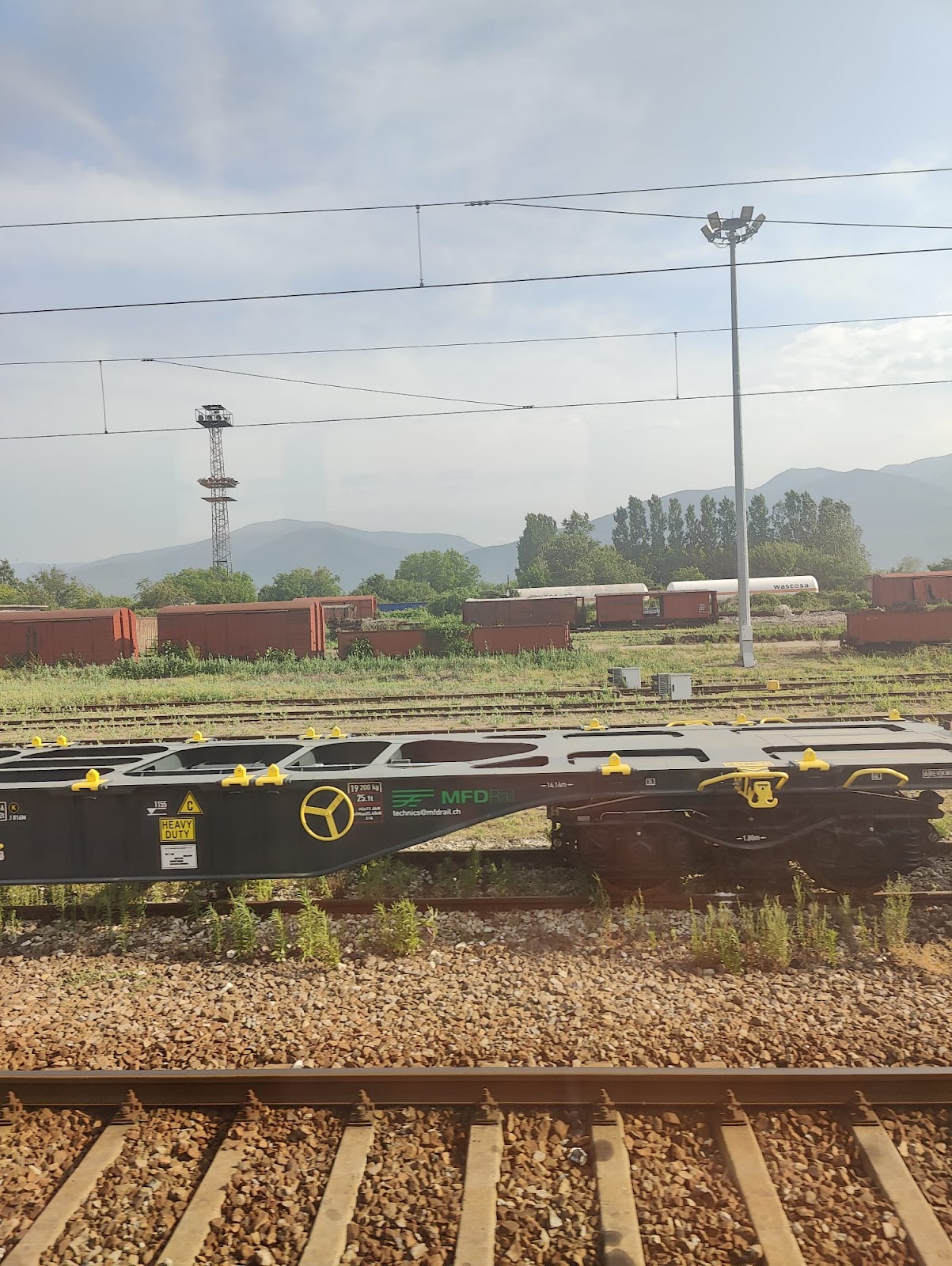


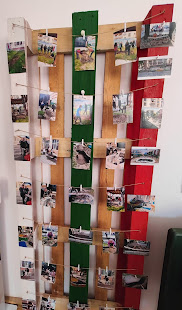





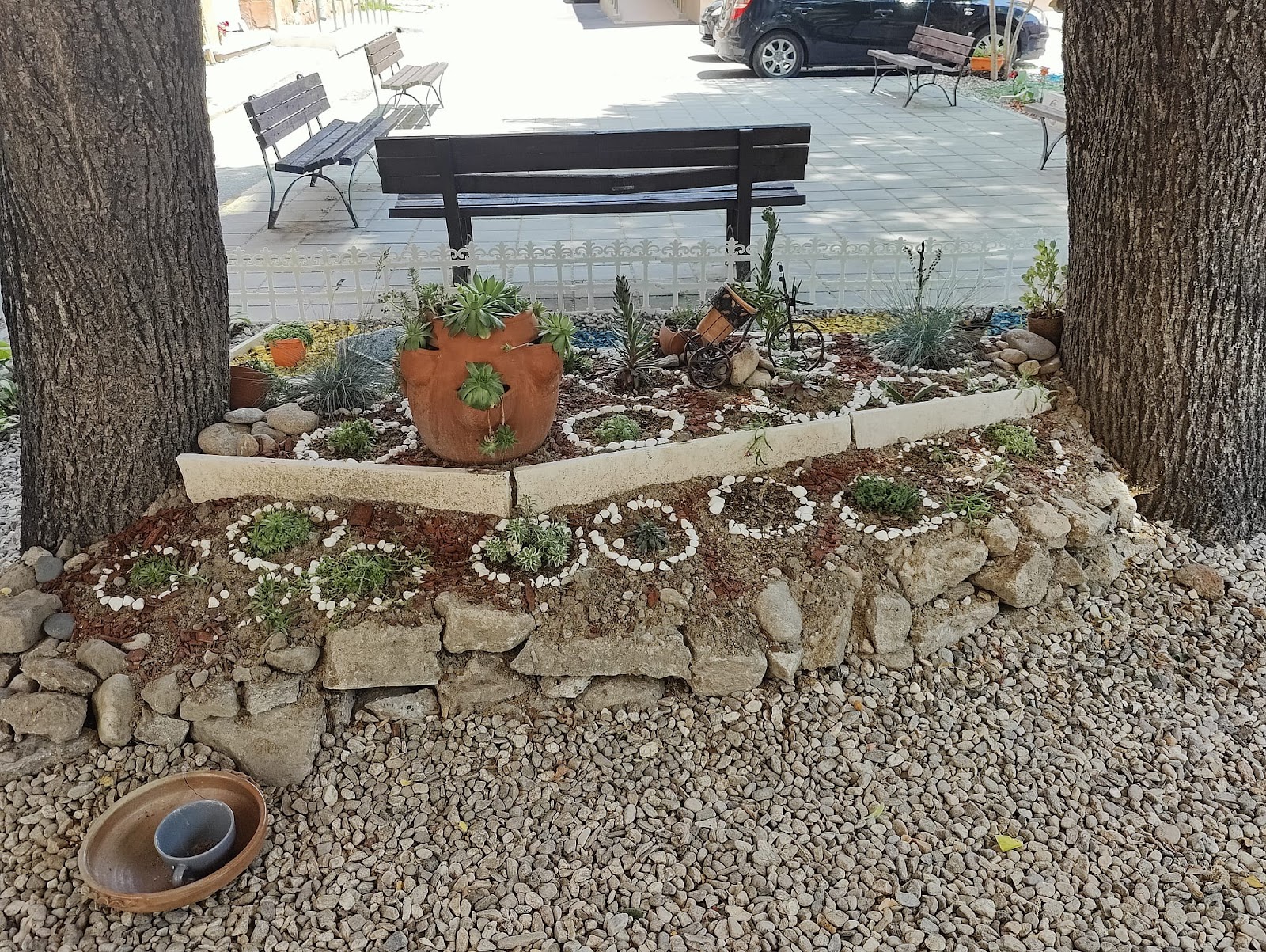


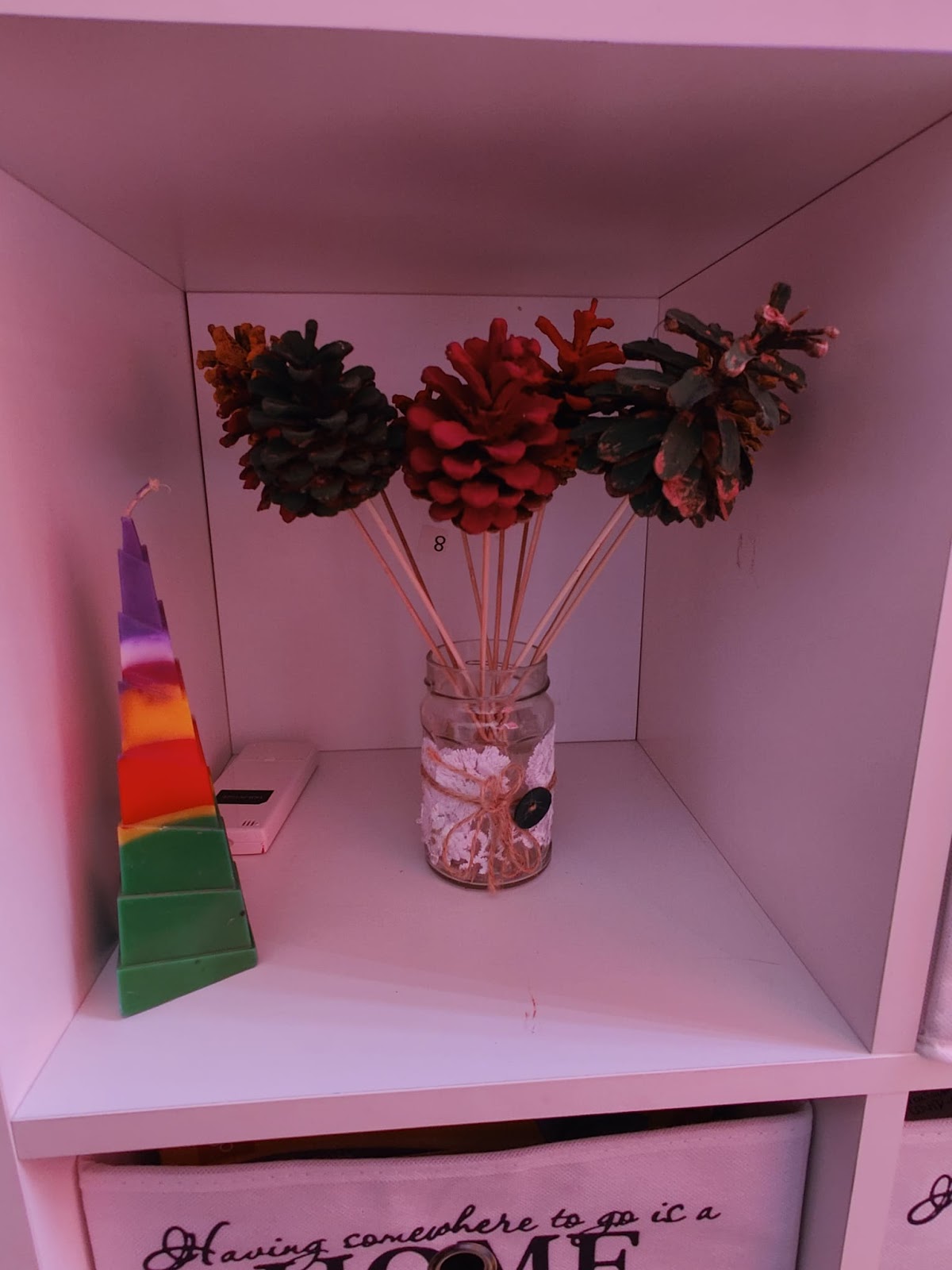


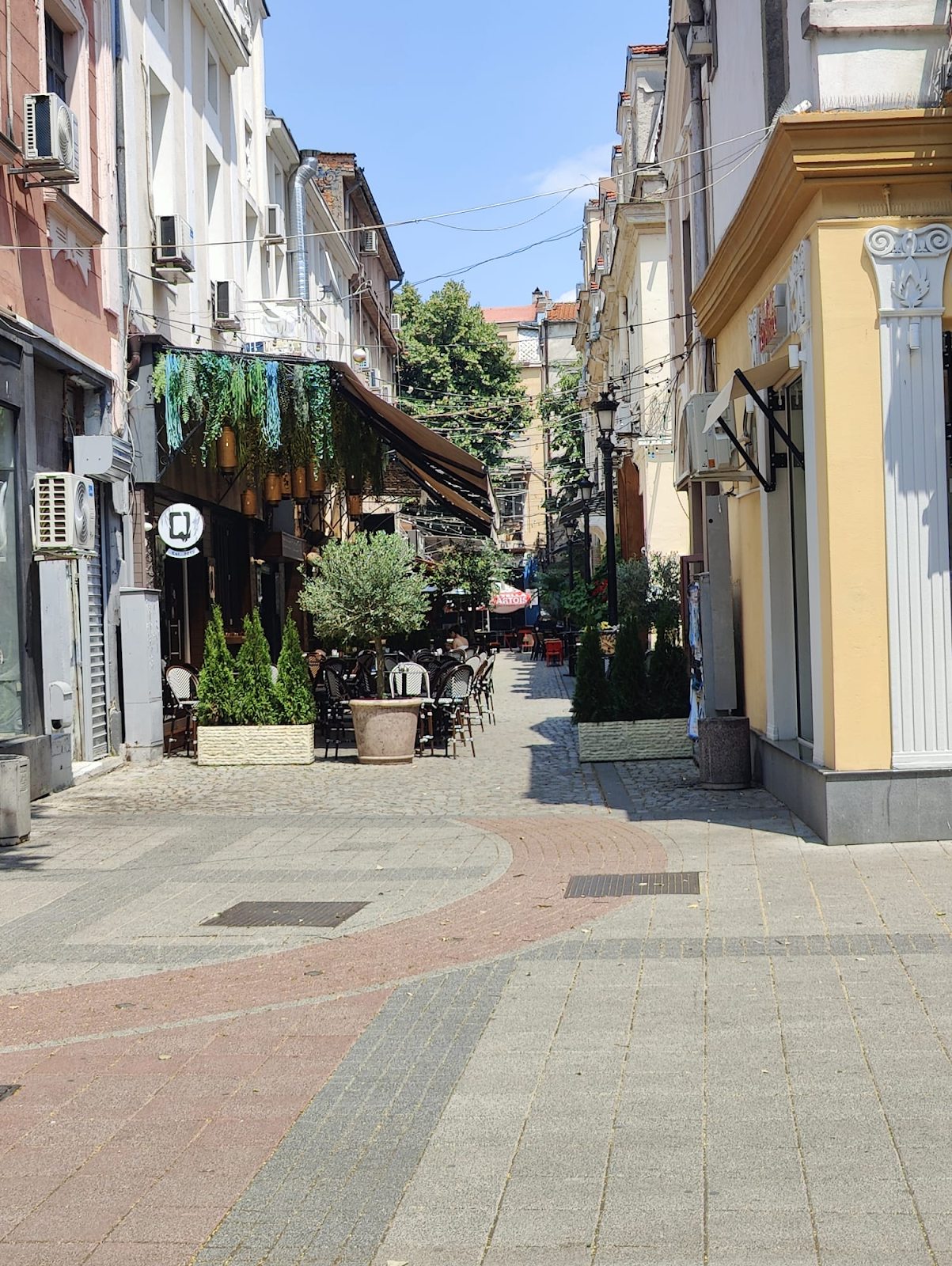
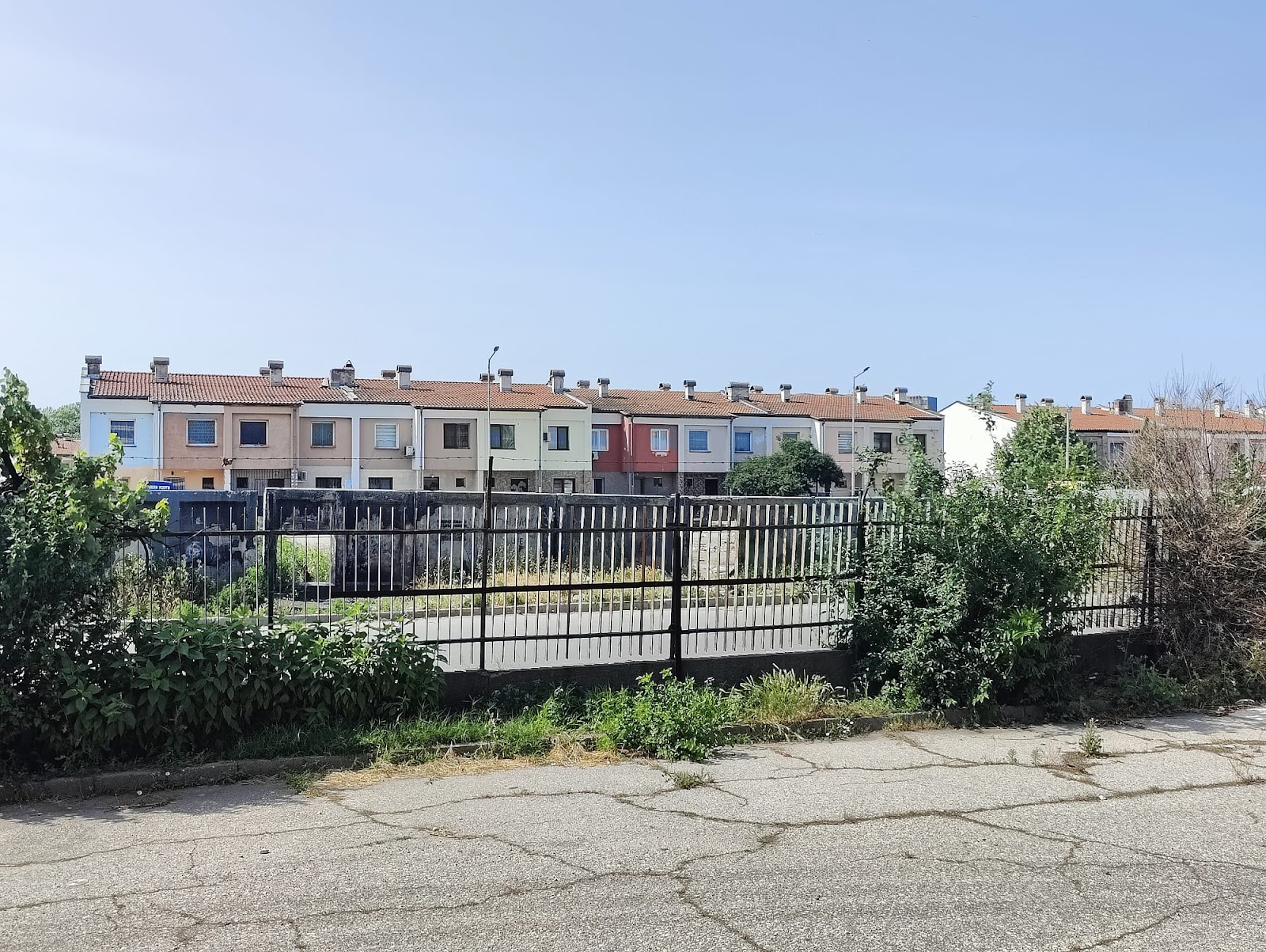
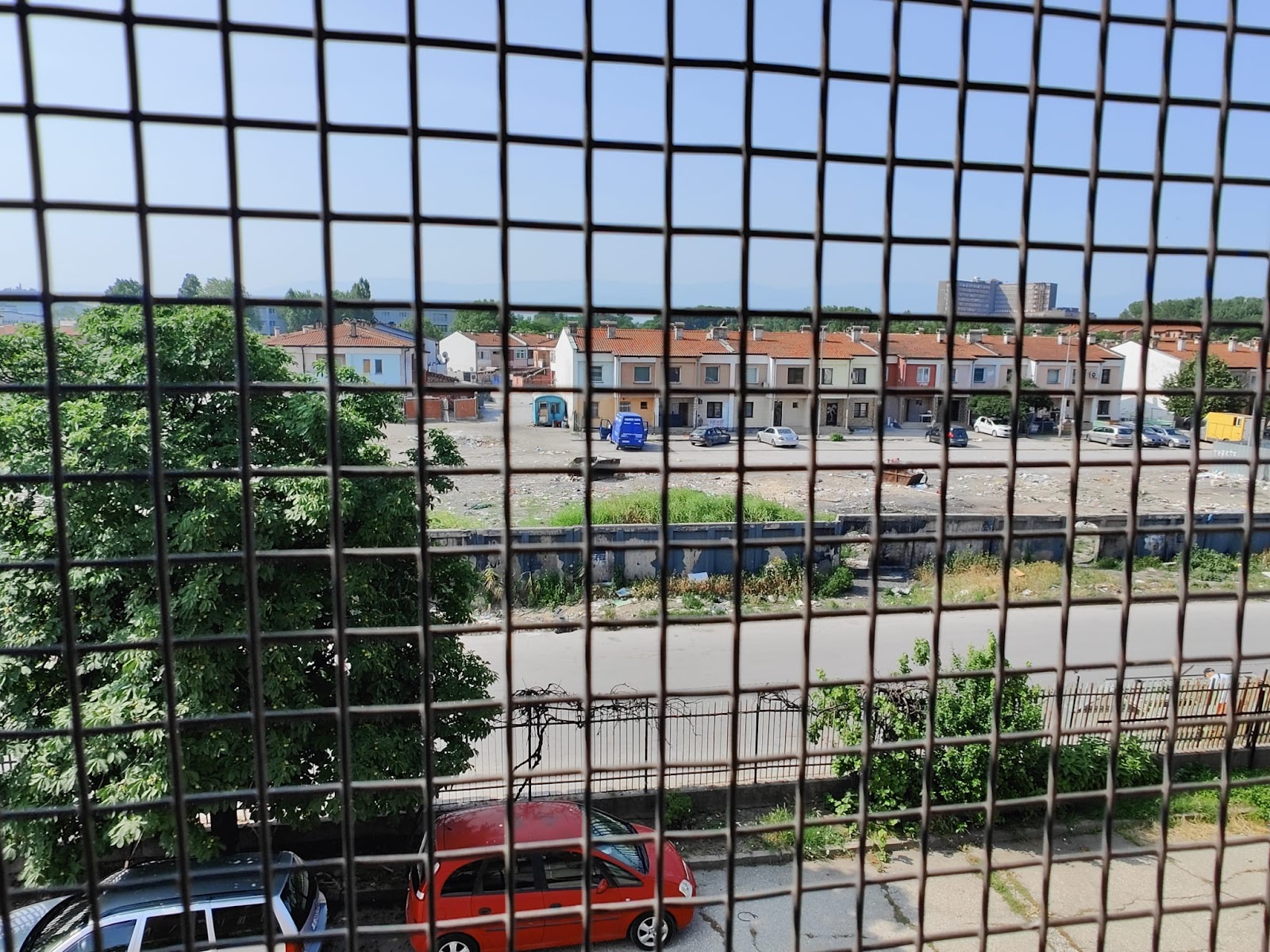



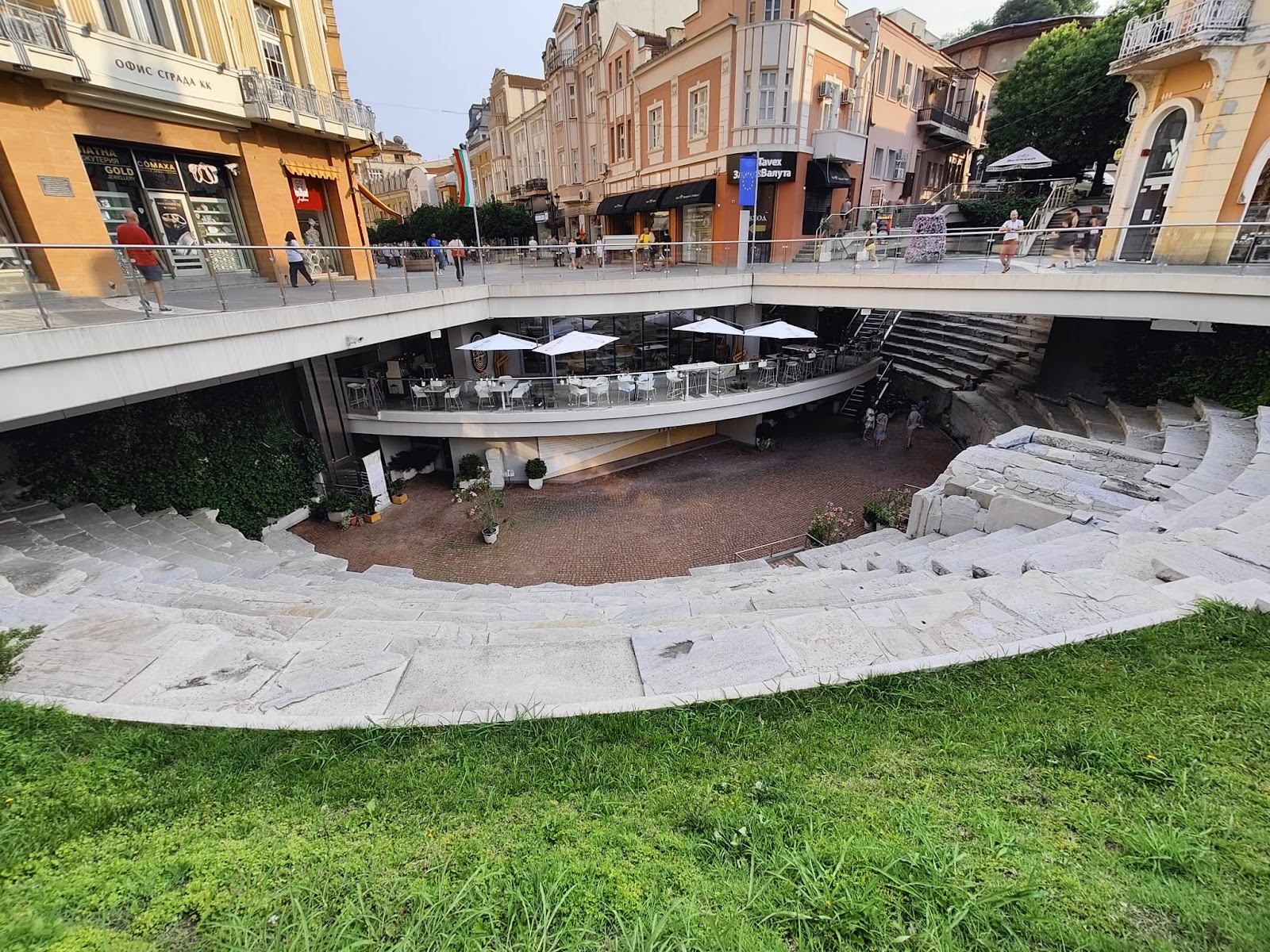


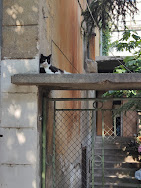









Kommentit
Lähetä kommentti